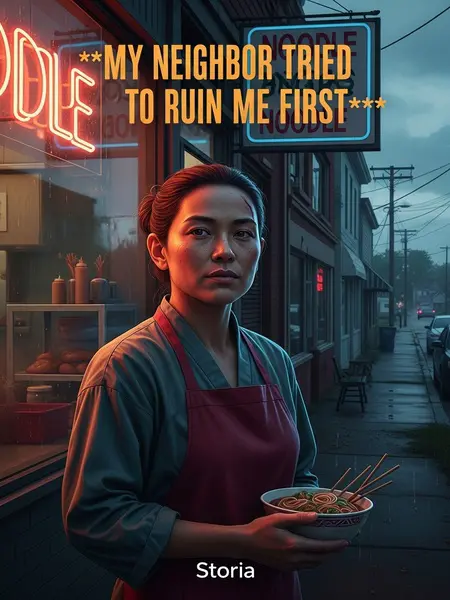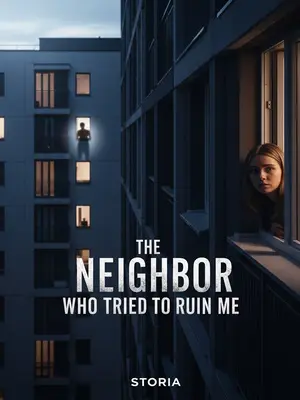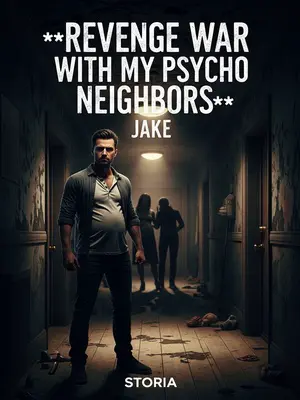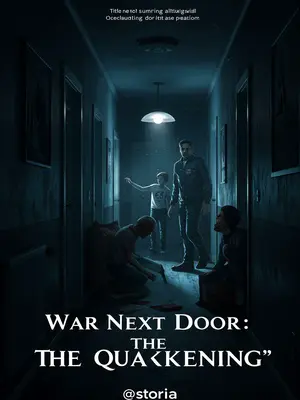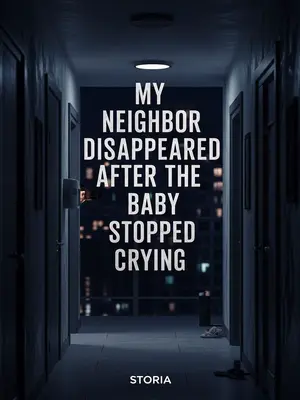Chapter 5: Trash Wars and Legal Gambles
Ever since Betty falsely accused me of using illegal stuff in my food, she realized that because of her age, the police just gave her a warning, so she got even more brazen, coming up with all sorts of tricks.
She figured out the system—knew just how far she could push without getting into real trouble. It was like she had nothing to lose. She acted untouchable.
Starting the very next day, Hank and Betty began causing trouble in every way they could.
It was like clockwork—every morning, I’d find a new mess outside my door. It became part of my daily routine, like some twisted game. It wore me down.
Dumping trash at my shop entrance, pouring out greasy meat water, tossing spoiled deli meats...
I’d step outside and nearly slip on a puddle of rancid fat, or find bags of old bones stacked against my door. Sometimes it was worse—rotten eggs, chicken skins, things I didn’t even want to identify. It was disgusting.
Whatever was most disgusting, that’s what they did.
They got creative. Once, they even dumped a bucket of fish guts right under my window. The smell was so bad, I almost lost my breakfast. It was a nightmare.
Soon, the entrance to my shop was piled with garbage, stinking to high heaven.
Customers had to step over piles of trash just to get inside. The smell drifted down the block, and even the mailman complained. I was mortified.
I tried calling the police, but every time the officers came, the old couple just said, “Go ahead, arrest us. We’d love to get three square meals in county lockup.”
They laughed in the officers’ faces, daring them to do something. “At our age, a night in jail sounds like a vacation.” It was infuriating.
Because of this, the officers were just as frustrated.
I could see it in their faces—they wanted to help, but their hands were tied. They’d seen it all before, and they knew the game. They looked helpless.
They definitely couldn’t arrest them.
Nobody wanted to be the cop who hauled two old folks off in cuffs, especially not in a small town where everyone knows everyone. It was a PR nightmare.
At their age, the police were afraid if anything happened, they’d get blamed.
One officer pulled me aside and said, “Look, if they fall or get sick in custody, it’s on us. We have to be careful.” He looked genuinely worried.
The officers could only try to talk them down.
They’d plead, reason, even offer to help clean up, but Hank and Betty just shrugged and played dumb. It was like talking to a brick wall.
Tell them to clean up.
They’d promise to take care of it, then do nothing. It was all for show.
The old couple refused.
They’d cross their arms, shake their heads, and insist they were innocent. “We’re just old folks. What do you expect us to do?” Their act was convincing to anyone who didn’t know better.
Tell them to pay for cleaning.
They just acted all innocent.
Betty would clutch her chest and say, “We’re on a fixed income. We can barely pay our own bills.” The crocodile tears were almost impressive.
After a few times, the police could only privately advise me to bear with it.
They pulled me aside, voices low. “Honestly, there’s not much we can do. Just hang in there. Maybe they’ll get bored and stop.” Their sympathy was real, but it didn’t help.
They said with unreasonable, shameless old folks who haven’t committed any real crime, there’s nothing they could do.
Their words stung, but I knew they were telling the truth. The law has its limits. I felt trapped.
But how can you just put up with this?
Every day, I’d wake up dreading what I’d find outside. It was like living in a nightmare. My nerves were shot.
Running a restaurant, keeping the front clean is basic.
If your place looks dirty, nobody wants to eat there. It’s rule number one in the business. I was losing customers by the day.
With trash piled up at my door, reeking, not only did it drive away customers, but the city health inspector started hassling me.
One afternoon, the inspector showed up unannounced, clipboard in hand. He wrinkled his nose, took photos, and handed me a citation. “You need to keep your premises clean, or we’ll have to shut you down.” The shame was overwhelming.
So it turned into this cycle—every day the old couple threw garbage and poured dirty water at my door; I called the cops; the police came to mediate but couldn’t solve it, so they told me to endure; then the health inspector came and ordered me to clean up immediately; I called the police again, the police came to mediate again...
It was like some twisted version of Groundhog Day. I’d mop up, scrub the sidewalk, and by morning, it would start all over again. I was stuck in a loop.
This went on for more than a week.
Seven days of hell. I barely slept, barely ate. My nerves were shot. Each day felt longer than the last.
My business got worse and worse...
The regulars stopped coming. New customers turned around at the door. I watched my savings dwindle with every passing day. I felt helpless.
I wanted to break the lease and get my rent back, but the landlord said the contract wasn’t up and wouldn’t let me, told me to find someone to take over.
I called him, desperate, but he just shrugged. “You signed a year lease. If you want out, find a replacement.” His indifference stung.
But anyone who came to look at the shop was scared off by the mess before we could even talk price.
I put up ads, called friends, even lowered the price, but nobody wanted a shop with a built-in trash problem. They’d take one look at the sidewalk and run for the hills. I couldn’t blame them.
Just like that, in only about ten days, my shop was on the verge of closing down.
I stood behind the counter, staring at the empty chairs, wondering how it all went so wrong so fast. The silence was deafening.
I was furious.
I punched the wall in the back room, just to feel something other than despair. My knuckles bled, but I didn’t care. The pain was almost a relief.
Because I get up early and work late selling noodles, not just for the money.
This shop was my dream—my shot at giving my family a better life. I’d poured everything into it. It was more than just a business.
I’ve got a family to support, a kid in school, bills everywhere.
My wife picked up extra shifts at the hospital. My little girl needed new shoes for gym class. The pressure was crushing. I felt like I was letting them down.
And my initial investment was scraped together from all sorts of loans.
I owed money to the bank, to my uncle, even to a couple friends from high school. Every month, the bills piled up higher. The debt was suffocating.
If the shop closed, my family would be finished too.
I couldn’t let that happen. Not after everything we’d sacrificed. I had to fight.
Finally, I couldn’t take it anymore.
One night, after everyone else was asleep, I sat at the kitchen table and made a decision. I wasn’t going down without a fight. I steeled myself for what was coming.
I found a lawyer, spent $1,200 on legal fees, and filed a lawsuit against the old couple.
It felt like a gamble, but I scraped together the money and made the call. If nothing else, maybe it would scare Hank and Betty into backing off. It was my last shot.
At first, I thought there was nothing the court couldn’t fix.
I believed in the system—thought justice would be swift and fair. I pictured the judge slamming down the gavel, telling the old couple to knock it off. I had hope.
But reality hit me hard...
The process was slower than molasses. Paperwork, signatures, court dates—all of it dragged out longer than I ever imagined. I felt like I was sinking in quicksand.
Before I hired the lawyer, I asked around a lot.
I called friends, checked online reviews, even asked the guy who runs the hardware store. Everyone had an opinion. The advice was all over the place.
A friend told me, “In small towns, the lawyer is key for lawsuits. But not everyone with a law license is a real pro. You have to go to a big firm. Big firms don’t hire people without connections.”
He leaned in, voice low. “You want results, you need someone who knows the ropes. Connections matter more than diplomas around here.” His words stuck with me.
What my friend meant was—firms and lawyers rely on each other. Big firms value their employees’ connections, and lawyers need the firm’s name to boost their reputation.
It’s all about who you know. The right handshake can open more doors than any amount of paperwork. That’s just the way it is.
So my friend recommended a firm and told me to find Attorney Simmons there.
He scribbled the name on a napkin and said, “Trust me, this is your guy.” I held onto that napkin like a lifeline.
He also told me quietly that Attorney Simmons’ wife worked at the county courthouse and had serious connections. If I hired him, there’d be no problem.
He winked, adding, “His wife runs half the show at the courthouse. You’ll be in good hands.” It sounded almost too good to be true.
So I found Attorney Simmons.
The office was in a renovated old house, the kind with creaky floors and diplomas on every wall. Simmons greeted me with a firm handshake and a practiced smile. I tried to size him up.
Simmons was in his early fifties, tall and thin, wearing gold-rimmed glasses—looked pretty sharp.
He reminded me of a high school principal—authoritative, but with a sly glint in his eye. I felt a mix of hope and anxiety as I sat down across from him. He looked like he meant business.
But as soon as he opened his mouth, he asked for $1,200.
No small talk, no sales pitch—just straight to business. “Twelve hundred up front, non-refundable.” My heart sank.
He said it was because I was referred by a friend; otherwise, he wouldn’t bother with such a small civil dispute.
He leaned back in his chair, folding his hands. “Normally, I don’t take cases this small. But since you know Mike, I’ll make an exception.” I nodded, trying not to show how desperate I was.
Even though it hurt to spend the money, I figured if I didn’t solve this, my shop would close for sure.
I hesitated, but in the end, I handed over the check. It felt like my last shot. I had no choice.
So I reluctantly paid up and asked Simmons how long it would take to resolve.
He flipped through my paperwork, nodding as he read. “Shouldn’t take long,” he said. “You’re in good hands.” I wanted to believe him.
He said confidently, “For ordinary civil disputes, from filing to trial, it’s usually within six months. But don’t worry, I can get it to trial within a month.”
He tapped his calendar, gave me a reassuring smile. “A month tops. You’ll have your day in court.” I clung to that promise.
“A month? I’m not sure I can hold out that long. Mr. Simmons, you have no idea what that old couple has put me through.”
My voice cracked. I poured out my story, hoping for a little empathy. I was desperate for help.
I got anxious, poured out my troubles, hoping he’d help me find a solution.
I told him everything—about the trash, the threats, the sleepless nights. I hoped he’d offer some kind of shortcut, some magic fix. I was running out of options.
But Simmons just said, “Your hardships are your own business. The court isn’t run by me or you. Everything has to follow procedure. A month is already the best I can do.”
He shrugged, clearly unmoved. “I can’t bend the rules for you. Just hang in there.” His words were cold.
Seeing his attitude turn cold, I felt pretty upset.
I sat there, feeling foolish for expecting anything more. I realized then that to him, I was just another client. I felt small.
But the money was paid, and the complaint was already filed.
There was no turning back. I just had to ride it out and hope for the best. I felt trapped by my own choices.
And my friend had said Simmons was well-connected, so it wouldn’t be smart to offend him.
I forced a smile, thanked him for his time, and left the office with a knot in my stomach. I couldn’t afford to burn bridges.
I could only ask nervously, “Is it guaranteed to win?”
I paused at the door, voice barely above a whisper. “Do you think we’ll win?” I needed hope.
Simmons glared at me.
He frowned, looking almost insulted. I shrank in my seat.
“That’s not a professional question. What lawyer dares guarantee a win in court?”
He raised an eyebrow. “No honest lawyer promises a win. All I can do is fight for you.” His tone was final.
“But don’t worry, I’ll do my best to help you resolve this.”
He softened a bit, offering a half-smile. “I’ll do everything I can.” I nodded, not sure what to think.
His vague answer left me feeling uneasy.
I walked out, wishing I felt more reassured, but instead, I just felt lost. The uncertainty was eating at me.
I didn’t know if my money was well spent—I could only leave it to fate.
I tried to stay hopeful, but deep down, I knew it was out of my hands now. I hated that feeling.
Back at the shop, I waited anxiously for the trial.
Every day felt like an eternity. I checked my phone every hour, waiting for an update from Simmons. The stress ate at me. I barely slept.
But the old couple next door didn’t let up at all.
If anything, they doubled down—more trash, more grease, more nasty looks through the window. I felt like I was living in enemy territory.
They kept dumping garbage and pouring greasy water at my door every day, making the place reek.
It got so bad, even the stray cats avoided my sidewalk. I started wearing gloves just to clean up in the mornings. It was humiliating.
But since I’d already paid up and hired the lawyer, I decided to endure it. I even called my wife and cousin to help clean up the entrance every day.
We worked together in the early hours, scrubbing, sweeping, and doing our best to keep the place presentable. It was exhausting, but we didn’t give up. Family pulls together.
But business kept getting worse, with only a handful of customers each day.
Some days, I’d serve maybe three bowls before closing early. The silence in the shop was deafening. I felt invisible.
What made things even more hopeless was—after the court summons was delivered to Hank and Betty...
